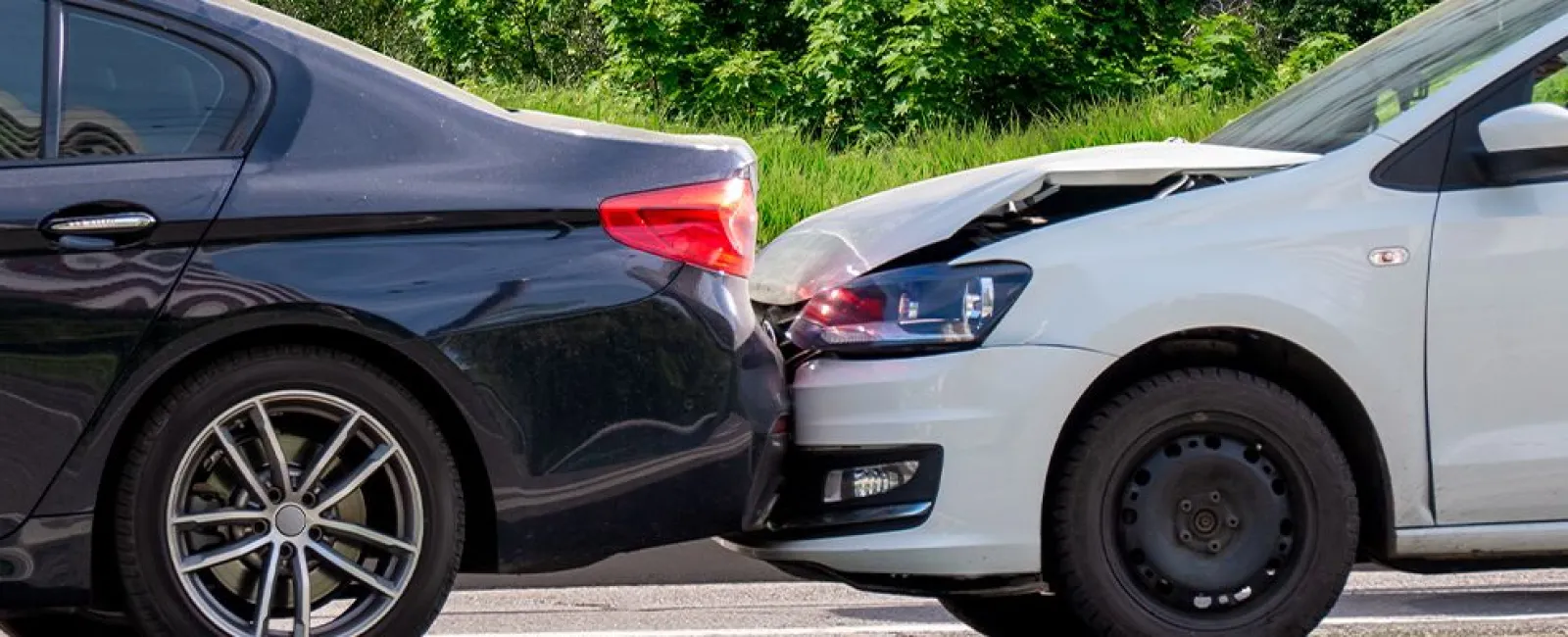Rear-end collisions are one of the most common types of car accidents, and they can happen to anyone. These accidents can range from minor fender-benders to severe crashes resulting in significant injuries. If you've been rear-ended and are suffering from a personal injury, knowing what steps to take immediately after the crash is crucial.
Our attorney at Fenderson Law Firm will walk you through exactly what to do after being rear-ended in Orlando, Florida or the surrounding areas. It's essential to know how to protect your legal rights, and how to seek compensation for any damages or injuries you've sustained.
Complete a Safety Check and Call for Help
The first and most important step after being rear-ended is to check the safety of everyone involved. If possible, move your vehicle out of traffic to prevent further collisions. Turn on your hazard lights to warn other drivers, and assess the situation.
If there's a personal injury, or if the accident involves significant vehicle damage, call 911 immediately to get emergency medical services and the police on the scene.
Check for Injuries
Once the immediate danger has passed, check yourself and your passengers for injuries. Rear-end collisions, even those that occur at low speeds, can cause serious injuries like whiplash, concussions, and back injuries.
Many injuries from rear-end accidents might not be immediately apparent due to the adrenaline rush, so even if you feel fine, it's essential to get a medical evaluation as soon as possible.
Common Injuries From Rear-End Collisions
Rear-end collisions can cause a variety of injuries, including:
Whiplash: One of the most common injuries, caused by the sudden jerking motion of your neck during the collision.
Concussions and head injuries: Hitting your head on the steering wheel, dashboard, or headrest can lead to concussions or other traumatic brain injuries.
Back and spinal injuries: Rear-end collisions can exert intense force on the back and spine, leading to herniated discs, soft tissue injuries, and even more severe spinal damage.
Soft tissue injuries: Bruising, sprains, and strains are common in rear-end accidents.
Seeking medical attention right away allows injuries to be diagnosed early, and it also establishes medical records that can be critical if you need to pursue a personal injury claim.
Seek Medical Attention Immediately
Even if you don't think you were injured, it's critical to seek medical attention after being rear-ended. Some injuries, such as whiplash or internal damage, may not show symptoms right away but can become severe over time. A doctor can evaluate your condition and provide documentation of any injuries sustained in the accident.
In Florida, it's especially important to seek medical treatment as soon as possible because of the state's Personal Injury Protection (PIP) law.
According to the 2024 Florida Statutes, you have only 14 days to seek medical care after an accident to be eligible for PIP benefits. If you miss this window, you may forfeit your right to compensation for medical bills through PIP coverage.
Exchange Information with the Other Driver
After making sure everyone is safe and checking for injuries, it's time to exchange information with the other driver. Florida law requires drivers involved in an accident to exchange specific information. Here's what you should collect:
Name and contact information of the other driver.
Driver's license number.
Vehicle registration details.
Insurance information, including the policy number and insurance company.
Make, model, and color of the other vehicle.
License plate number.
Be polite and cooperative but avoid discussing fault or admitting any responsibility at the scene. Even casual statements like "I'm sorry" could be interpreted as an admission of guilt later on.
Gather Evidence at the Scene
Documenting the accident scene is essential to support your claim with your insurance company or if you need to file a lawsuit. While waiting for the police to arrive, start gathering as much evidence as you can. Use your phone to take pictures and videos of the following:
Damage to both vehicles: Take photos from multiple angles to show the extent of the damage.
The accident scene: Capture skid marks, debris, road conditions, traffic signals, and anything else that may have contributed to the accident.
License plates and identifying information: Make sure to photograph the other vehicle's license plate.
Injuries: If possible, take photos of any visible injuries you or your passengers have sustained.
If there are any witnesses, ask for their contact information and if they're willing to provide a statement. Witness testimony can be critical in a personal injury case, especially if fault is contested.
File a Police Report
Florida law requires you to call the police if there are injuries or significant property damage. The responding officer will create an official accident report, which contains important details about the crash, the drivers involved, and any citations that may have been issued.
A police report is an important piece of evidence when dealing with insurance companies or if you need to pursue a personal injury claim. Make sure to get the name of the officer, their badge number, and the accident report number so that you can request a copy of the report later.
Determine Vehicle Damage and Repairs
After the accident, you'll need to have your vehicle inspected to assess the damage. In many rear-end collisions, the damage may seem minor, but underlying structural issues can exist that require extensive repairs.
Your insurance company will likely require an inspection and may recommend certain repair shops. However, you have the right to choose your own repair facility. Make sure to get a written estimate for the repairs and keep all documentation related to the damage.
If the cost of repairs exceeds the value of your vehicle, it may be declared a total loss. In this case, your insurance company will pay you the actual cash value of the vehicle, minus any deductible.
Notify Your Insurance Company
Once you've received medical attention, contact your insurance company to report the accident. Florida is a no-fault state, which means your own insurance company will cover your initial medical expenses and other damages through your PIP coverage, regardless of who caused the accident.
When speaking with your insurance company, stick to the facts. Provide them with the details of the accident, the police report number, and any evidence you've gathered. Avoid speculating about fault or making assumptions about the other driver's actions.
Your insurance company will likely conduct its own investigation, and you may need to provide additional information or statements. It's a good idea to consult with an attorney before making any official statements to the insurance company so you don't inadvertently hurt your claim.
Contact a Personal Injury Attorney
Rear-end collisions can be complicated, especially when it comes to determining fault and dealing with insurance companies. If you've been seriously injured, it's essential to consult with an experienced personal injury attorney who can help you through the legal process.
An attorney can help you:
Investigate the accident: Your attorney will gather evidence, review the police report, interview witnesses, and work with accident reconstruction professionals if necessary.
Negotiate with insurance companies: Insurance companies may try to minimize your claim or offer a low settlement. An attorney will advocate on your behalf and negotiate for a fair settlement.
File a personal injury lawsuit: If your injuries are severe and your expenses exceed PIP coverage, you may file a personal injury lawsuit against the at-fault driver with the help of your attorney to possibly recover additional compensation.
In Florida, you have two years from the date of the accident to file a personal injury lawsuit. However, it's important to act quickly to preserve evidence and strengthen your case.
Our personal injury attorney at Fenderson Law Firm is there for you when you need assistance. We serve clients in Orlando, Florida as well as North Florida, including Pensacola, Tallahassee, Gainesville, Ocala, Jacksonville, and Panama City. We also serve clients in Central Florida, including Tampa, St. Petersburg, Clearwater, Lakeland, Deltona, Largo, and beyond.
Contact Us Today
Being rear-ended is a stressful and potentially life-altering experience, but taking the right steps immediately after the accident can protect your health and your legal rights. If you've been rear-ended in Orlando, Florida, or surrounding areas and need legal assistance, don't hesitate to contact our personal injury attorney at Fenderson Law Firm who can guide you through the process.


